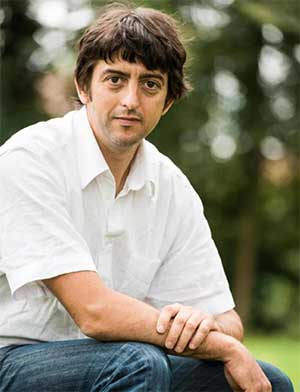Over the past few years, these updates have reviewed a series of approaches to eradicating HIV, all of which recognize the need to abolish reservoirs of latent virus. The proof that this can be done comes from the “Berlin patient,” the first and only person known to have been cured of HIV. That triumph was predicated on taking advantage of nature’s own experiment: the existence of a genetic mutation in a normal cell protein, known as CCR5, that can render a person virtually impervious to HIV infection.
 Dr. Linos VandekerckhoveWriting in the October issue of the journal Scientific Reports, amfAR-funded scientist Dr. Linos Vandekerckhove of Ghent University in Belgium, with colleagues from the University of Lausanne, Switzerland, and Flanders Institute of Biotechnology in Ghent, probes nature in another way, looking for new approaches to HIV treatment and possibly a cure.
Dr. Linos VandekerckhoveWriting in the October issue of the journal Scientific Reports, amfAR-funded scientist Dr. Linos Vandekerckhove of Ghent University in Belgium, with colleagues from the University of Lausanne, Switzerland, and Flanders Institute of Biotechnology in Ghent, probes nature in another way, looking for new approaches to HIV treatment and possibly a cure.
Vandekerckhove and associates recognized the importance of the interplay between HIV and host cell defenses, particularly as HIV seeks to circumvent the latter, and the cell attempts to fight back. They focused on something few other AIDS researchers have studied — not the usual genes in cells that code for proteins, such as CCR5, but so-called non-coding genes that bind to DNA, RNA, or protein and regulate gene expression.
One set of those genes, the long non-coding RNAs (lncRNAs)seems particularly interesting. lncRNAs have been associated with a variety of human cancers and autoimmune disorders. Using a test tube model, Vandekerckhove was able to link specific lncRNAs to a group of proteins involved in establishing HIV latency.
The authors concluded that the “comprehensive map” they constructed of differently expressed lncRNAs throughout the HIV life cycle “reveals a new and underestimated dimension in the HIV-host interplay. These findings suggest that lncRNAs represent promising and potential targets for controlling HIV.”
Dr. Laurence is amfAR’s senior scientific consultant.